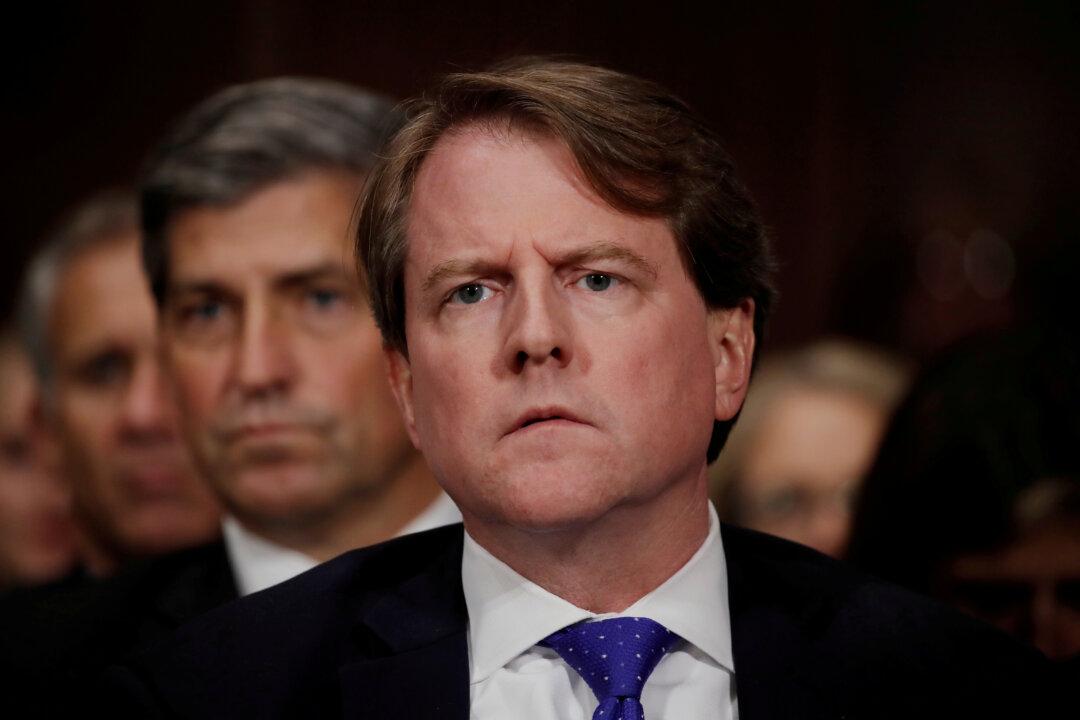The Justice Department (DOJ) argued on Dec. 23 that a federal appeals court shouldn’t referee a dispute between Congress and the Trump administration over the subpoena demanding that former White House counsel Don McGahn testify before the House Judiciary Committee.
In a court filing, the DOJ, which is arguing on McGahn’s behalf, addressed how the articles of impeachment against President Donald Trump will affect the McGahn case. The House approved two articles of impeachment last week against the president in a partisan vote.




